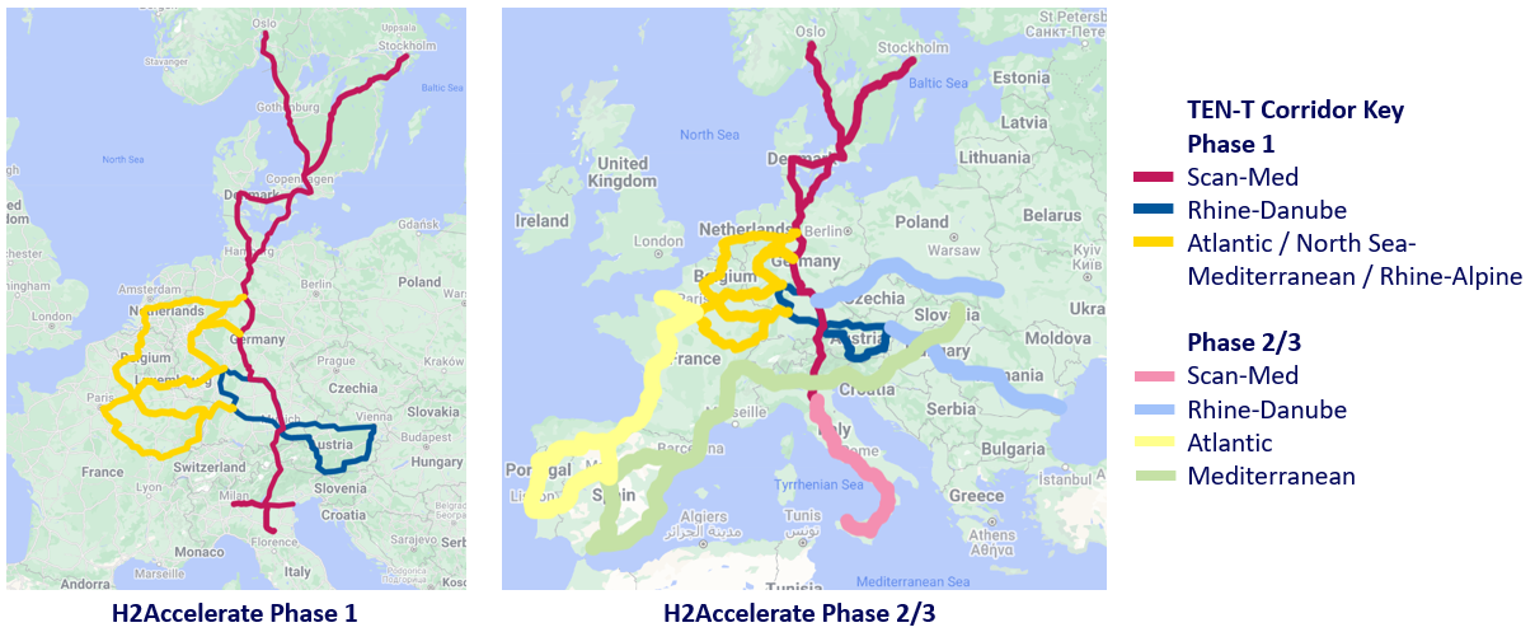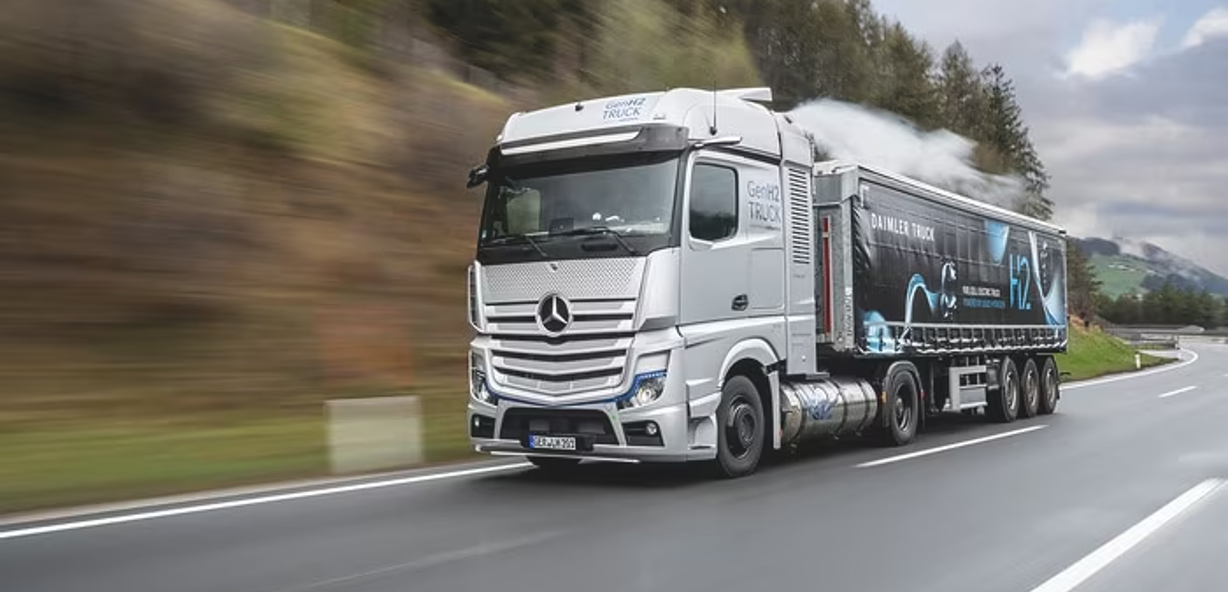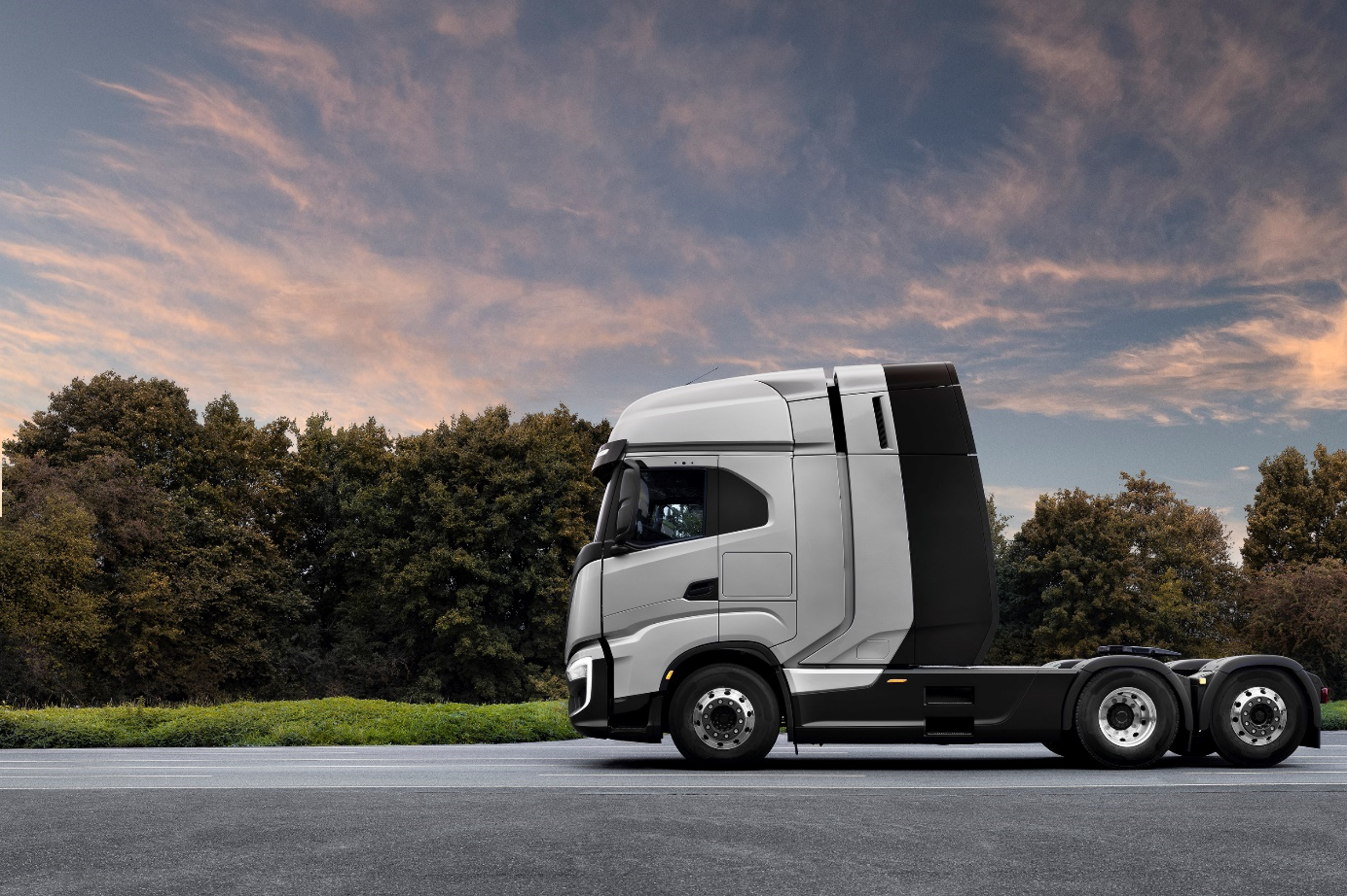Hydrogen trucking on the road to success with 150 fuel cell trucks and 29 hydrogen refueling stations for roll-out under the H2Accelerate collaboration
The H2Accelerate collaboration has today published the latest in a series of whitepapers in support of the use of hydrogen for long-haul trucking in Europe. Following the announcement on the 14th March that the collaboration has received €30m of funding from the Clean Hydrogen Partnership for the deployment of 150 fuel cell trucks, and €42m further funding from the Connecting Europe Facility for 8 stations under the Inaugural Station Deployment project and 12 stations under the Expansion Network, this whitepaper discusses the expectations for Phase 1 of the H2Accelerate collaboration’s plans to achieve industrialization of hydrogen-fueled trucking in Europe.
European funding enables Phase 1 of deployment for hydrogen trucks and infrastructure
These two initiatives aim to demonstrate the technical and commercial viability of long-haul hydrogen trucking, through the deployment of 8 hydrogen refueling stations in France and the Netherlands in parallel to the deployment of 150 fuel cell trucks. Shortly after this funding was announced, the Connecting Europe Facility announced that a further H2Accelerate Expansion Network of 12 stations was also approved for funding. This is in addition to the 9 stations to be deployed by H2Accelerate member TotalEnergies, which were approved for funding prior to TotalEnergies joining the collaboration, bringing the total hydrogen refuelling stations to be deployed by H2Accelerate members in Europe to 29.

Richard Ferrer, Head of Innovation & Alternative Fuels at the European Climate Infrastructure and Environment Executive Agency, said of the H2Accelerate projects:
“I am delighted that the European Union, through the Connecting Europe Facility programme is able to support the deployment of thirty-two hydrogen stations from members of the H2Accelerate partners. These high capacity stations, distributed across key transport corridors, will contribute to the emergence of a sustainable refuelling network in Europe in line with the objectives of the future Alternative Fuels Infrastructure Regulation (AFIR). The combination with the support of the Clean Hydrogen Partnership co-funding 150 fuel cell trucks allows matching the supply offer with the demand. This project will benefit European citizens as it will play a key role in reducing road transport emissions to reach the climate-neutral economy planned by the European Green Deal.“

A key feature of this first phase will be to collect data and feedback on the operational and financial performance of the vehicles and infrastructure, which will be used to inform the next phase of deployment, to maximise the speed at which the sector can reach full industrialisation.
Three major European OEMs to produce hydrogen trucks and scale up to series manufacturing
The H2Accelerate TRUCKS project will see the deployment of 150 fuel cell trucks in Europe from leading manufacturers Daimler Truck, Iveco Group, and Volvo Group. The Clean Hydrogen Partnership has granted funding of €30m, enabling the roll-out of these heavy-duty, zero tailpipe emissions vehicles; the trucks deployed will be either 4×2 or 6×2 with up to 44 tonne gross vehicle weight. The vehicles will be refuelled using either 700 bar or liquid hydrogen, have a range of over 600km, and be refuelled in under 15 minutes. Following the successful implementation of the TRUCKS project, each of these major European players expect to progress to series manufacturing of the vehicles, enabling significant capital cost reductions.
Infrastructure players developing high-capacity networks of stations, and renewable hydrogen production capacity
In parallel with the deployment of fuel cell trucks, H2Accelerate infrastructure players Linde, Shell, and TotalEnergies aim to deploy a series of high-capacity dual-pressure hydrogen refuelling stations across Belgium, France, Germany, the Netherlands, and Spain. These 29 stations will be the first in a much larger network.
The stations will be supplied by renewable hydrogen, and H2Accelerate members are already developing green hydrogen production capacity. For example, Shell is already operating a 10MW electrolyser in Germany as part of the Refhyne project and has taken a final investment decision on a 200MW electrolyser in the Netherlands under Holland Hydrogen 1. The whitepaper sets out the case for hydrogen production for mobility and industrial applications as complimentary off takers, which enable synergies on scale and potential hydrogen price.
Christian Nissing, Head of Business Development Europe at H2 Mobility Solutions, TotalEnergies, said of the plans:
“The future of heavy-duty mobility relies on the availability of renewable hydrogen production and refuelling infrastructure. TotalEnergies is excited to take this next step. Through our projects under the H2Accelerate collaboration and funded by the Connecting Europe Facility, we are committed to bringing 29 hydrogen refuelling stations to Europe in the next few years, and being a member of H2Accelerate has enabled us to ensure these stations will see large-scale demand from fuel cell trucks.”

Synchronized deployments lead to better end user experience and business cases for infrastructure providers and truck manufacturers alike
Approval of these projects for funding by the Clean Hydrogen Partnership and the Connecting Europe Facility indicate the high level of maturity of the plans and the strategic importance of developing the hydrogen trucking sector in Europe. The funding is expected to enable the synchronised deployment of both heavy-duty vehicles and refuelling infrastructure, removing the barrier to first mover action commonly linked to complex projects such as these. This will contribute to a growing network of funded projects propelling the hydrogen value chain.
Through the H2Accelerate collaboration, the technology, geography, and timescales of fuel cell truck and hydrogen refuelling infrastructure can be synchronised, providing security of supply for end users and de-risking the necessary large-scale investments for OEMs and infrastructure providers alike. This will enable the development of relevant technologies and standards, paving the way for the wider roll-out of hydrogen trucks throughout Europe and the eventual industrialisation of the hydrogen trucking sector.
